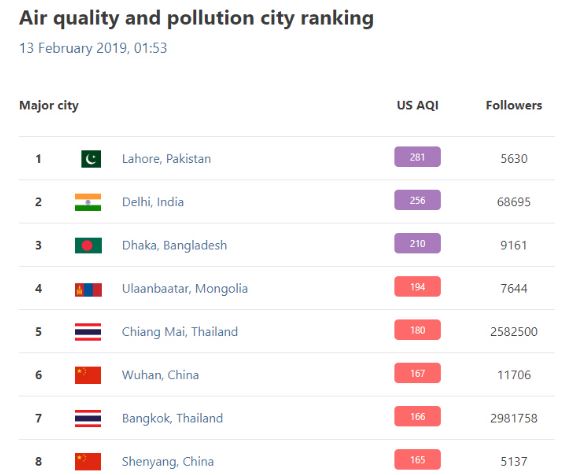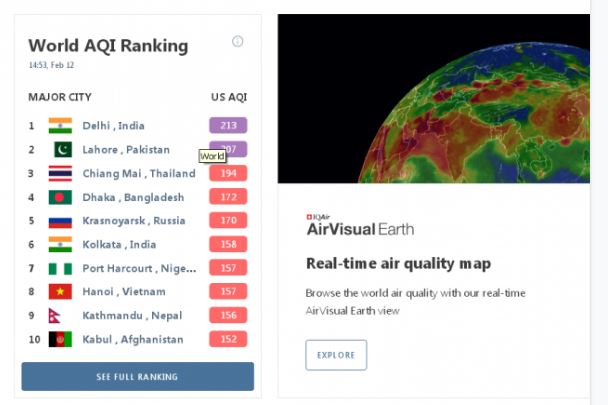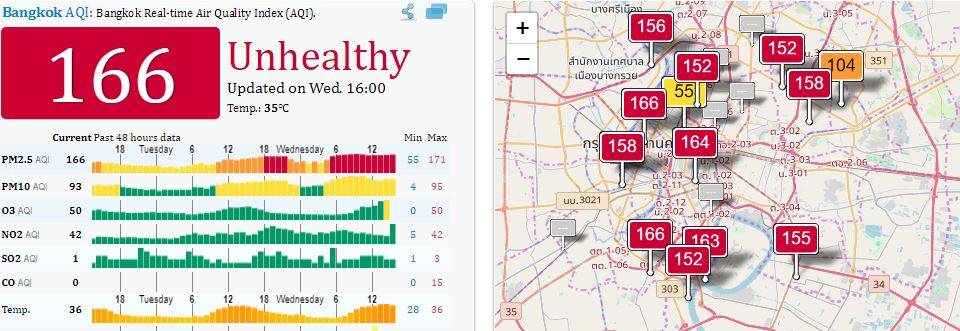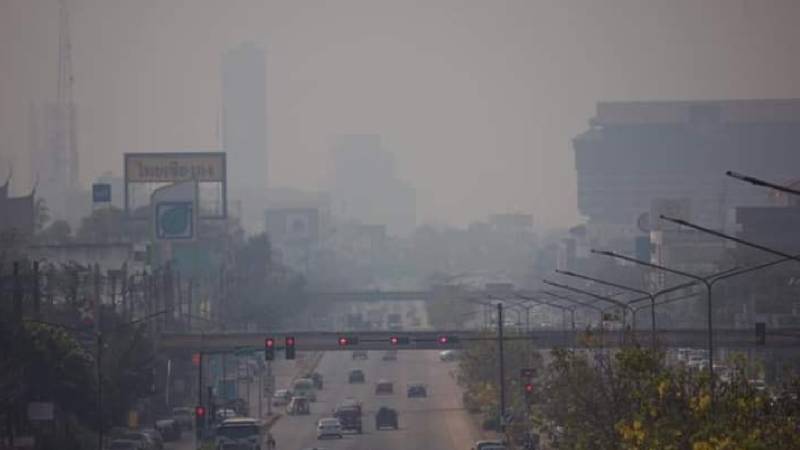Bangkok isn’t the only Thai city currently battling hazardous air pollution, Chiang Mai is now also among the most polluted places in the world.
Figures from the global Air Quality Index (AQI) from the wee hours this morning showed Chiang Mai as the 5th-worst air in the world, followed closely by Bangkok in 7th place.

Both cities are in levels that are categorized as “unhealthy,” the level at which “everyone may begin to experience health effects.”
As bad as today’s air quality sounds, it was actually worse yesterday. At one point in the afternoon, Chiang Mai ranked as the 3rd-most polluted city in the world with a score of 194 — just a few points below Delhi in India and Lahore in Pakistan.

However, it is the Northeastern province of Khon Kaen that’s been suffering the brunt of Thailand’s air pollution in the past couple of weeks.
On Sunday, the region’s economic center scored a baffling 206 in the AQI. The city also scored higher than 200 several times last week, among the highest scores was last Friday’s 213, reported The Nation.
Scores above 200 are considered “very unhealthy,” meaning “the entire population is more likely to be affected.”
น้องกลับบ้านเพื่อมาเจอฝุ่นหรอนี่ 😢 แล้วฝุ่นเยอะขนาดนี้ ยังไม่เห็นใครสวมหน้ากากเลย พ่อแม่พี่น้องจ๋า ออกจากบ้านช่วยสวมหน้ากากด้วย น้องเป็นห่วงงง😥#ขอนแก่น#ฝุ่นPM25 pic.twitter.com/Dpxza3x384
— Smile_ยิ้มสิคะ 😁💚🐥 (@Smile19818847) February 8, 2019
Meanwhile, government’s efforts to spray water in hazardous areas, in hopes of breaking up the smog, reportedly continues across the kingdom.

The latest AQI update — from 4pm today — shows Bangkok’s score at 166, which places it in the “unhealthy” category.

Since the air pollution crisis was propelled to the spotlight at the beginning of last month, it’s continued to be a pressing concern for citizens.
The capital’s current airborne dust particle count of PM2.5 (particulate matter with a diameter of less than 2.5 micrometers) is dangerous, as it can bypass the nose and throat, penetrating deep into the lungs and even enter the circulatory system, according to the Journal of Thoracic Disease.
A study published in the Journal of the American Medical Association suggested that, in the long term, this can lead to heart attack and stroke.
As always, stay safe out there beautiful readers!




